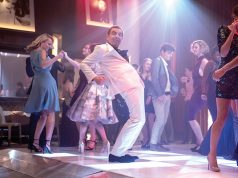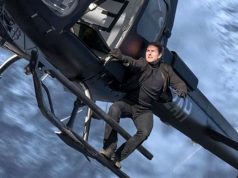“I Spy” was a moderately popular, somewhat-fondly remembered series that ran only three seasons in the 1960s. It starred Robert Culp and Bill Cosby and is noteworthy now primarily as a footnote: It was the first non-comedy series to star an African-American actor. I have never seen the show, so I cannot say how the new film version compares. I would guess they are not even remotely similar, since Eddie Murphy and Owen Wilson were not acting yet then, and since both actors are playing the same characters they always play.
Murphy is an arrogant, fast-talking champion boxer named Kelly Robinson, the sort of guy who refers to himself in the third person and who talks so fast you sometimes can’t understand him.
He is scheduled to fight in Budapest, where by coincidence an evil billionaire madman (Malcolm McDowell) is holding a top-secret invisible airplane that he stole from the U.S. government. Robinson is enlisted to help the Bureau of National Security get the plane back, teaming up with bumbling agent Alexander Scott (Wilson).
Scott is busy competing with cocky fellow agent Carlos (Gary Cole) and seeking attention from pretty lady agent Rachel (Famke Janssen), all while trying to earn respect in the bureau. If he screws this job up, he’s history!!!! Or something.
If it sounds pretty formulaic, then I have described it accurately. Men from different walks of life who dislike each other and are of different ethnicities must work together, slowly becoming friends amidst all the verbal sparring. The only thing separating this from “Rush Hour,” “Shanghai Noon,” “Blue Streak” and dozens of others is that this one is based on a TV show. The car chases, explosions and one-liners spoken while being shot at are all the same.
Murphy continues his descent into oblivion with yet another phoned-in performance. Wilson does the same down-to-earth, wry-humor shtick that has worked numerous times before and almost works here.
There is a scene where Robinson coaches Scott, Cyrano-style, on wooing Rachel, using the lyrics to “Sexual Healing” as his ammunition. Perhaps it is no coincidence that this, the film’s one funny scene, is one where Murphy and Wilson are not even in the same room.
D+ (1 hr., 36 min.; )





